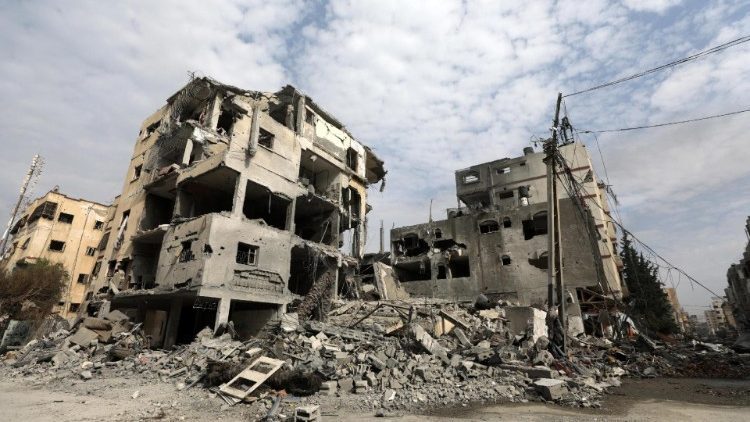There are 700 people taking refuge inside the Holy Family Catholic Parish in Gaza City.
“There is only destruction and desolation around,” said Sr. Nabila Saleh, a religious sister serving in the parish, in an interview with Roberto Cetera of the Osservatore Romano.
As Israeli troops amass near the dividing wall in preparation for an all-out ground invasion, Sr. Nabila noted that the wait is “wearisome”.
“On the one hand, it gives us a shred of hope,” she said. “On the other hand, it disturbs and distresses us even more.”
Shut up in the church without medicines
“We have been shut in here now for 19 days in a seesaw of information from the outside that increases our anxiety,” she explained.
Although sheltering in the church has so far proven safer than seeking refuge elsewhere, the close quarters they share is beginning to put their health at risk.
An aggressive flu virus has begun to spread in the church, which has spread easily among a large proportion of people taking refuge there.
People are suffering from elevated fever, respiratory infections, and dysentery.
“We especially fear for the elderly and very young children. The problem is that we no longer have doctors or nurses available, because they are all busy in the emergency departments. Most importantly, we don’t have enough medicines,” said Sr. Nabila.
No food and electricity
People in the church are relying on aid organizations for food but still manage to buy water outside.
They also suffer from a lack of electricity since their solar panels have been destroyed.
For only three hours a day a generator is turned on so all the activities are concentrated in those hours, “including charging the phones, which is as important to us as food, to inform but more importantly to be informed,” said Sr. Nabila.
Community in the church
The people of Gaza have gathered in the Holy Family parish church for more reasons than merely security.
“Being all here together under the roof of the church is not only safer. Being together gives us a courage and strength that individually we would not have. And that we did not know we had,” concluded Sr. Nabila. “Never before have we been more of a community.”






